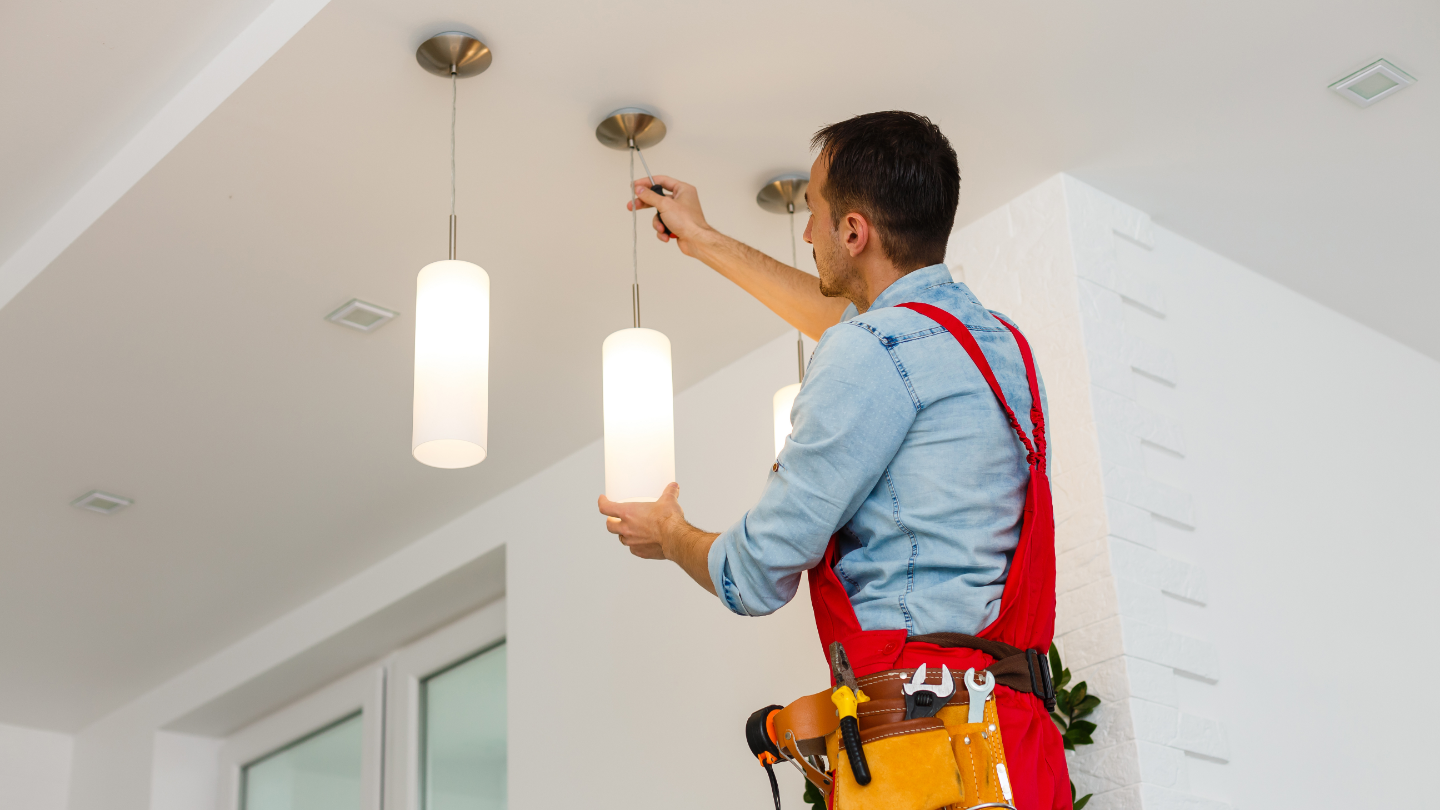Hire a Licensed Electrician in New Orleans | House Fly
New Orleans homes have character—and electrical quirks to match. Between humidity, frequent storms, and a mix of historic cottages and newer builds, electrical systems here work hard. When a light flickers, a breaker trips, or you’re ready to add a ceiling fan before the next heat wave, the safest, smartest move is to hire a licensed electrician. House Fly it easy to hire a licensed electrician in New Orleans: shop real prices, compare local pros, and book in minutes with secure, in‑app or website checkout. No phone tag, no “call for quote,” no handing out your personal number. Just pick the time that works and get it done.
Why “licensed” matters (especially in NOLA)
Safety first. Electricity isn’t a place to experiment. Licensed electricians are trained to prevent shock, fire, and equipment damage—and to spot the hidden problems DIY often misses.
Code compliance. Louisiana has adopted modern building and electrical codes statewide (including the 2020 National Electrical Code®), and New Orleans enforces those standards through permits and inspections. Staying compliant isn’t just red tape—it’s how you protect your home and investment.
Permits are required in the City of New Orleans. If you’re installing, repairing, replacing, or altering electrical equipment (anything beyond swapping a bulb or fuse), a permit is required—and it must be pulled by a licensed contractor. In fact, the city specifies that only a contractor with a Class “A” Electrical License can obtain an electrical permit.
The right license for the job. New Orleans issues trade licenses (such as Class “A” Master Electrical Contractor and Class “D” Journeyman). These credentials are renewed annually and align with state and ICC testing—your assurance that the pro standing in your foyer actually meets the bar.
What the code is trying to protect you from
Modern code updates are written in response to real‑world risks—things we see in our climate every year.
- Power surges (lightning & grid blips). Since 2020, the NEC requires a Type 1 or Type 2 surge protective device (SPD) at dwelling services. That’s a big deal in a stormy city where surges damage refrigerators, HVAC boards, and smart devices.
- Shock hazards. NEC 210.8 expands GFCI protection to more locations and voltages than before—think bathrooms, kitchens, laundry areas, outdoors, damp/wet locations, and more. A licensed electrician knows where protection is required and how to install it correctly.
- Old meets new. In older New Orleans homes, you may encounter ungrounded outlets, cloth‑insulated conductors, or mixed materials from past repairs. Licensed pros are trained to upgrade safely and integrate new work with legacy systems—without creating future failures.
Taken together, Louisiana’s adoption of the 2020 NEC and the City’s permit/inspection process create a safety net. Hiring licensed pros is how you use it.
Projects that should always be handled by a licensed electrician: hire a licensed electrician in New Orleans | House Fly
If any of the following are on your to‑do list, bring in a licensed pro and pull a permit when required:
- Panel upgrades / service changes (including storm‑hardening and whole‑home surge protection).
- New circuits for appliances, spas/hot tubs, outdoor kitchens, or home offices.
- Lighting & fan installs at height, complex multi‑switch controls, or smart dimming ecosystems.
- EV charger installations (dedicated circuits, load calculations, and code‑compliant mounting).
- Standby or portable generator interlocks/transfer switches (life safety + backfeed prevention).
- Storm or flood damage assessments (hidden corrosion and insulation failure are common after heavy weather).
In New Orleans, these are typically permitted activities that must be performed by a licensed contractor—another reason not to DIY.
What “licensed” looks like in New Orleans
- Class “A” Master Electrical Contractor: The company/contractor that can pull permits and take legal responsibility for the work. Insurance and state/ICC testing are part of the picture.
- Class “D” Journeyman: A qualified electrician who can perform the work under the appropriate supervision structure. Annual renewal and proof of competency apply here too.
When you book through House Fly, you’re choosing from local businesses that publish prices, reviews, and availability—making it easy to hire qualified pros.
Permits & inspections: the “boring” step that protects your wallet
Permits are there to document what was done, where, and by whom. For electrical work in New Orleans, the City requires permits to be obtained by licensed electricians—with inspections to ensure the job meets code. That record can help with future insurance questions, resale, and troubleshooting. It’s proof your home’s electrical system was upgraded the right way.
How to book and hire licensed electrician in New Orleans on House Fly (step‑by‑step)
- Open House Fly and choose Electric. You’ll see service categories with real prices—no “call for quote.”
- Enter your address (Uptown, Lakeview, Mid‑City, Bywater, Gentilly, Algiers—yes, we serve those and more). The app surfaces nearby pros with live availability.
- Compare options by price, profile, and reviews, then pick your time.
- Checkout securely (Stripe‑powered) and keep communication in private, in‑app chat. No phone number sharing necessary.
- Day‑of: Your electrician arrives, does the work, and you handle everything in one place—scheduling, messaging, and payment. If the job requires a city permit, your contractor will handle that process.
Why New Orleanians choose House Fly for electrical work
- Upfront pricing & instant booking. Shop actual prices and lock a time in minutes.
- Secure transactions & privacy. Cash‑free checkout through a trusted processor; private chat keeps personal info personal.
- Local, independent professionals. Providers operate their own businesses (they’re not House Fly employees), and you pick the right fit for your project.
- No lead selling. No memberships. House Fly isn’t a lead marketplace, and sign‑up is free—what you see is what you pay at checkout.
- Born in New Orleans. House Fly was founded here and built for how we actually maintain homes in this climate.
A quick homeowner checklist: how to hire a licensed electrician in New Orleans | House Fly
- □ Ask whether the job requires a city permit; if so, confirm your contractor will pull it (Class “A” required to apply).
- □ Request whole‑home surge protection if your panel doesn’t have it yet (NEC 230.67).
- □ Confirm GFCI protection in baths, kitchens (countertops), laundry areas, garages, outdoors, and other damp/wet areas.
- □ If you’re renovating, discuss load calculations and any panel/service upgrades needed for EVs, hot tubs, or new HVAC.
- □ Keep documentation: permit number, passed inspection, model numbers of protective devices, and date of installation.
The bottom line: Hire a Licensed Electrician in New Orleans | House Fly
Electrical work touches life‑safety. In New Orleans—where storms roll through, power surges aren’t rare, and homes span centuries—licensed isn’t optional; it’s essential. Hire a licensed electrician, pull permits when required, and let inspections work for you.
When you’re ready, House Fly gives you the fastest path from “I need an electrician” to “It’s handled”—with real prices, instant booking, secure payments, and a marketplace of independent pros who take pride in their craft.
FAQ
Q: Do I really need a permit for small electrical jobs?
A: In New Orleans, permits are required for installing, repairing, replacing, or altering electrical equipment (beyond bulbs and fuses). Licensed contractors handle the permit and inspection.
Q: Who can pull the electrical permit?
A: Only a contractor with a city‑issued Class “A” Electrical License can apply for the permit.
Q: What’s the difference between a Master (Class “A”) and a Journeyman (Class “D”)?
A: A Class “A” contractor can pull permits and take responsibility for the job; a Class “D” journeyman is a qualified electrician performing the work within the proper structure.

















